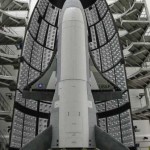Both, AAC and the air force support operations in Siachen Glacier. The difference between the functioning and responsiveness of the two agencies is indicative of their respective attitude. After delivering stores to forward posts, air force pilots prefer to return back to the Base Camp without load rather than give lift to some needy soldiers. Their logic is simple – ‘it is not a part of our designated task’. It used to be an extremely sad sight to see soldiers standing at helipads with stacks of chocolates (part of their high altitude rations) prominently displayed in improvised trays to attract attention of returning air force sorties overflying them. It was their way of buying a lift to the base camp by offering goodies to a pilot as quid pro quo.
After every war, a number of accounts appear in the press referring to lack of timely air support for ground battles.
Whereas the air force pilots strictly adhere to the flight schedules as per their contracted agreement, AAC pilots readily undertake emergent sorties even in inclement weather conditions. Ask any soldier who has served at the glacier. While they hold AAC pilots in high esteem, the same cannot be said of the air force pilots. Many soldiers feel that even hired civilian truck drivers display more concern and empathy for them as compared to the air force pilots.
After every war, a number of accounts appear in the press referring to lack of timely air support for ground battles. The air force invariably contests these accusations and points out that they have to allocate air effort as per operational priorities. The air force may be fully justified but the army remains skeptical. Herein again, trust deficit makes reconciliation difficult. It is not uncommon to hear soldiers comparing ground air support with police of Hindi movies – always arriving at the scene when action is about to be over.
Reasons for Trust Deficit
Trust deficit is a manifestation of negative mindset resulting in lack of required degree of faith and confidence. Being products of their environment, attitudes and outlook of all human beings are moulded by the environment in which they operate, especially during the formative years. Due to lack of adequate exposure to open environment, they fail to acquire broader vision with advancement in career. Their apathetic deportment towards developing mutual trust is a result of their wariness of jointmanship. Resultantly, they remain apprehensive of proposals mooted by the other services.
Trust deficit is a manifestation of negative mindset resulting in lack of required degree of faith and confidence. ”¦ Due to lack of adequate exposure to open environment, they fail to acquire broader vision with advancement in career.
Services guard their turf with fierce fanaticism. Every proposal that affects a service’s span of command faces strident resistance. The navy and the air force fear that the sheer size of the army would overwhelm their independent identities. In this regard, the air force’s sense of insecurity is very well known.
It is often said that air force hierarchy’s heckles go up even if they see an army or naval officer flying a kite. They consider it to be a threat to their domain – everything airborne must be under their control. They dread loss of exclusivity and privileged standing.The level of distrust can be gauged from an Air Marshal’s views, “The army’s case for transferring medium and attack helicopters to it has merely given us a sneak preview of the old mindsets that still prevail in all service headquarters beneath the veneer of jointmanship and bonhomie.”
Many senior commanders resist change if it affects their personal status – both formal and informal. Status provides a sense of fulfillment in the highly hierarchy-conscious services. When a Chief opposes CDS citing national interests, nobody gets taken in. It is apparent to all that he dreads loss of his fiefdom. Prevailing trust deficit is a result of this sense of personal reticence.
The Way Forward
Although all the three services have laid down doctrine that support jointmanship with inter alia stress on mutual trust, the ground reality is diametrically opposite. Limited communication between the three services prevents development of mutual trust. This dichotomy has been the bane of the Indian armed forces.
It is time for all senior commanders to introspect whether they are being loyal to the country by continuing with the current atmosphere of trust deficit. National security is too serious a matter to be permitted to drift.
Prejudiced predisposition and constricted attitude are the biggest impediments in bridging trust deficit existing between the services. Therefore, modulation of attitudes is a prerequisite. As attitudes are affected both by implicit and explicit influences, the services should make judicious changes in influencing environment. Additionally, a concerted effort must be made to make selfish commander see reason and persuade them to shed their petty-mindedness.
It is time for all senior commanders to introspect whether they are being loyal to the country by continuing with the current atmosphere of trust deficit. National security is too serious a matter to be permitted to drift. Service and personal loyalties cannot be permitted to take precedence over national interests. Earnest efforts should be made to remove dissonance between the three services. Genuine concerns of all must be addressed but unjustified obduracy should not be tolerated. Existing state of trust deficit cannot be allowed to continue indefinitely as national security is too serious a matter to be permitted to be held hostage by parochial commanders.




